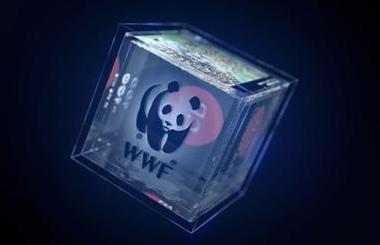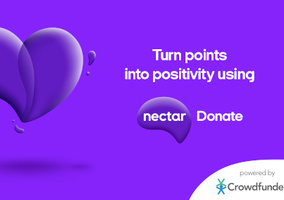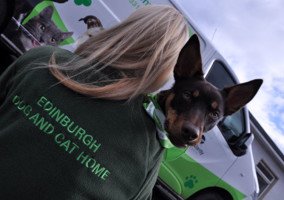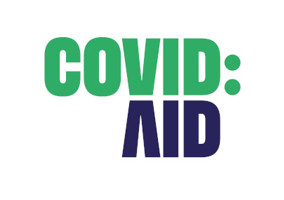WWF-UK has been accused of hypocrisy after it announced it was experimenting with raising money by selling digital tokens on a blockchain platform.
When the charity published a tweet with a trailer ahead of the launch hundreds of people replied saying it was a bad idea. Several called for the charity to rethink its plans.
WWF-UK insists that the platform is as environmentally friendly as possible, and said it would monitor the effectiveness of the trial.
What WWF-UK is doing
Yesterday WWF-UK launched its own non-fungible token (NFT) marketplace to raise money by selling digital collectables.
It has created a series of artworks which represent some of the planet’s endangered animals. For its first sale, which started yesterday, 11 tokens representing different animals, including the tapanuli orangutan.
The number of tokens available for each species corresponds to the number to the number still living in the wild. For example there are only 74 Javan rhinos in the wild, and so only 74 Javan rhino NFTs will be available to mint.
The charity said the initial run will be staggered. The final release will be done in partnership with Open Sea, the largest peer-to-peer marketplace for crypto collectibles and non-fungible tokens, and feature the two most at-risk species: The Northern White Rhinoceros (2 left in the wild) and the Vaquita (up to 10 left in the wild).
For this special drop, celebrated artists Ted’sLittleDream and Yam Karkai have created new artworks inspired by these animals, with two and ten editions, respectively, to be sold.
WWF-UK could not say how much it hopes to raise from the campaign.
Sarah Ward, director of individual marketing and legacies at WWF-UK, said: “In the fight for our world, we all must take individual action. Our aim is to push the boundaries of what WWF can offer our community and we hope this venture into NFTs will inspire many other organisations.”
Criticism
WWF-UK’s NFT marketplace is built using the Ethereum scaling protocol, Polygon. The charity described this as a “sustainable, eco-friendly blockchain”.
Polygon claims that the way it validates transactions is more energy efficient than other NFT platforms.
Critics say that the processing power needed for blockchain platform based on Ethereum means it cannot claim to be sustainable.
Environmental campaigner and journalist George Monbiot tweeted: “When the "solution" becomes indistinguishable from the problem.”
When the "solution" becomes indistinguishable from the problem. https://t.co/GRfYxpQzL2
— George Monbiot (@GeorgeMonbiot) February 2, 2022
The author Lissa Evans said she was cancelling her membership.
Are you out of your minds? I'm cancelling my WWF direct debit today, and I won't be the only one.
— Lissa Evans (@LissaKEvans) February 2, 2022
One Twitter user said: “Did you just completely forget the point of your charity?”
Another said: “Protecting animals with a source of destruction for the planet, good job guys.”
The charity also received several abusive messages in response to its tweet.
In response to the critics WWF-UK said: ““We are always looking at innovative ways to engage WWF supporters and fundraisers and trial new ideas.
“This is a hugely expanding area that many other organisations and some charities are already operating in, and we are keen to build up our knowledge. We know that NFTs are a much debated issue and that this is an untested market, which is why this was planned as a very small, time-limited test of 13 NFTs, built on Polygon which has negligible environmental impact.
“The money WWF-UK earns from these sales will go towards our vital conservation work across the globe to tackle the climate and nature crisis. We will be fully assessing the impact of this exercise including its comparative carbon impact.”
Polygon says a transaction on its platform uses just 0.001kWh of electricity, which means you would have to make 28 transactions on Polygon to have the same environmental impact as charging your phone once, or 71 transactions to equal the emissions of a single cup of tea.
Editor's note - 4 February 14.55
This story has been updated with fresh extra comment from WWF.
Related articles












